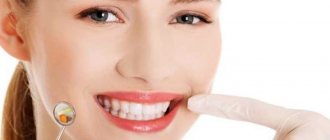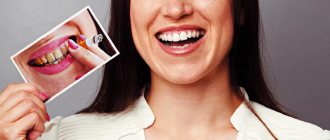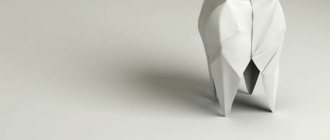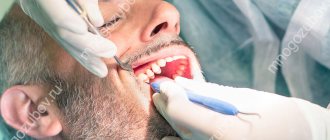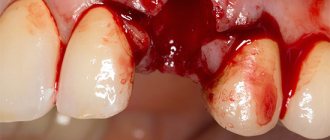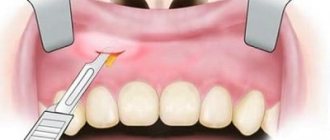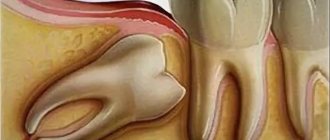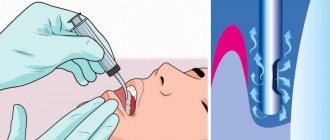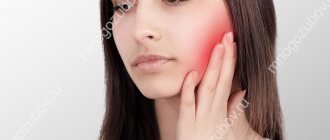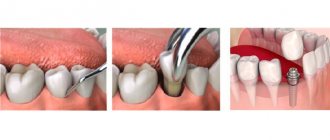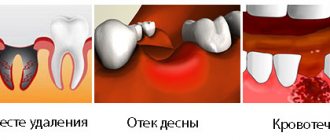Tooth extraction in adults is a surgical operation, albeit a minor one. And doctors usually give out a list of recommendations on what to eat or drink, how to care for the wound and oral cavity. In the next few hours the restrictions are more strict, sometimes you need to be careful for a few more days until everything heals. But treatment is always stressful, and many people worry whether they can drink coffee after tooth extraction. After all, this always calms you down, puts you in a familiar mood, but won’t it hurt? We understand all the features and reasons for the prohibitions.
General recommendations
The most important rule in such a sensitive issue will be timely assistance from a qualified specialist. Therefore, if your tooth suddenly starts to hurt badly, this is not a reason to just take a pill and forget about this unpleasant moment, this is a good reason to go to a dental clinic, where you will be given first aid.
With any removal, complex or ordinary, there are a number of rules that must be followed to speed up the healing of the wound, as well as avoid abscesses and other negative consequences.
- Removing the gauze compress. The doctor leaves cotton wool or gauze after tooth extraction. A maximum of one hour after arriving from the dentist, you must carefully remove the protective swab. If it has dried out and stuck to the gum, do not remove it until you soak the area with chlorhexidine, since careless movement can damage or even remove the clot hiding the wound.
- Pain relief. Any discomfort after tooth extraction is a normal process for which you need to be prepared. Ice or any cool item from the refrigerator will help relieve discomfort. The selected item is wrapped in a towel and applied to the sore cheek. In addition to relieving pain, this action will help reduce the chances of swelling. However, this action also has its limitations: ice can be applied several times, making sure to take a break of 5-7 minutes.
- Eating. In the first few hours after tooth extraction, be it a molar or a chewing tooth, you should not eat any food, even if you are very hungry. Over the next 24 hours, the temperature of the food should only be at room temperature. Food should not be too spicy or salty, this can cause additional irritation of the mucous membrane.
- Limit alcohol and smoking. On the first day after tooth extraction, you should refrain from drinking alcoholic beverages. Even a small dose of alcohol can cause blood vessels to dilate, which will ultimately lead to bleeding from the wound. Smoking is permissible, but again at least 2-3 hours after the operation.
- Applying and removing sutures. If sutures were placed at the dental clinic after tooth extraction, the patient is usually invited for a follow-up appointment in a week. In some cases, the sutures dissolve on their own within two weeks.
- Dental treatment. For those who are now closely involved in treating the entire oral cavity, a reasonable question arises: when can the procedures be continued? If the removal was not difficult, then it will be possible to resume meetings with your doctor after 7 days.
Recommendations after anesthesia
Removing a child's baby tooth is often done under anesthesia. And her children perceive her completely differently. Numbness of soft tissues, from the gums to the lips, can cause various psychological problems in the baby. Therefore, it is important to contact a specialized specialist who has an approach to children. He will explain that “the cheek should fall asleep, rest, and then wake up healthy” and so on. This should be done by the doctor, not the parents. Another important aspect is to specify the duration of this “sleep”. The child should not bite or try to injure the numb tissue in any way.
Parents should take care to keep the baby occupied during the duration of the anesthesia and distract him with something interesting. If your doctor allows it, you can drink some warm tea or eat a couple of spoons of melted ice cream or suck on a sugar-free lollipop.
If during anesthesia the child managed to injure his cheek or gum, then it is important not to give him sour and hard foods for 3-5 days, as well as freshly squeezed juices. The affected area should be treated with special ointments and gels.
The iOrtho clinic network provides high-quality services for correcting malocclusion with Invisalign aligners, sign up for a consultation now!
Important restrictions after tooth extraction
Each patient, in addition to recommendations, should also know what not to do:
- Visit the bathhouse, sauna or swimming pools. Experts also recommend limiting yourself to a short period of time by taking a shower rather than a hot bath.
- Go to the gym and take on heavy physical activity;
- Experiencing stress, which, oddly enough, can seriously affect the wound and even contribute to the opening of bleeding;
- Get into the mouth, in the wound area with dirty hands;
- Touch the site of tooth extraction, be it the tongue or fingers, because this will certainly lead to damage to the clot;
- Brush the removal area with a toothbrush;
- Actively rinse your mouth, because any aggressive external actions can lead to clot disruption and the development of alveolitis.
It is worth noting that representatives of the fair half of humanity are not recommended to remove teeth during the menstrual cycle, because this will only provoke bleeding from the resulting wound.
When can you drink
When asking a specialist how long after tooth extraction you can eat, most patients are also interested in the question of taking liquids. There are no contraindications to clean water, and you can drink it immediately after surgery. However, experts do not recommend rinsing the mouth. This is due to the fact that using liquid from the hole can wash out a blood clot, and this can provoke the development of complications. Experts advise drinking only boiled water, which should not be hot.
Taking medications after tooth extraction
Experienced specialists recommend taking antihistamines. They will help avoid swelling of the cheeks, because in addition to working on allergic reactions, antihistamines also have an anti-edematous effect.
You should not overdo it with medications if the pain is tolerable and tooth extraction was a procedure of ordinary complexity. A little trick that can be remembered for the future is to take an analgesic even before the patient stops feeling the anesthesia administered by the doctor.
As for antibiotics, it is strictly not recommended to take them without a corresponding prescription from the attending physician. In what cases does the surgeon issue a referral for the purchase of necessary medications:
- for difficult removal;
- with the development of the inflammatory process;
- in case of concomitant diseases such as stomatitis or candidiasis.
Soft food
If you answer the question of how long after tooth extraction you can start eating, then you can eat food either on the day of the operation or on the next day. However, it should be remembered that food must be soft at first. In order for the healing period to pass comfortably and quickly, experts recommend consuming soups, liquid cereals, purees, as well as foods enriched with vitamins in the first 2-3 days. The diet should include fruits, but preference should be given only to those with soft flesh. These are peaches, bananas, seedless berries, melon, apricots and persimmons. But it is better to refrain from citrus fruits such as oranges, lemons, kiwi, pomegranate and others. The large amount of acid contained in them has a negative effect on irritated gums.
Hygiene rules after tooth extraction
The first and important rule will be to limit brushing and rinsing your teeth immediately after surgery. You can start your usual lifestyle with daily brushing of your teeth the next day.
It is worth purchasing a brush with soft bristles at a pharmacy or store in advance, but it is still necessary to clean the area of removal with special care. Irrigator and dental floss are not allowed.
Hole hygiene deserves special attention. Dental surgeons recommend the following method for care:
- take a herbal decoction or a special rinse purchased at the pharmacy into the oral cavity;
- hold it in your mouth for several minutes, without performing any additional actions such as rolling water;
- After cleansing, you should try to refrain from drinking water and food for a couple of hours.
This action will help to avoid inflammatory processes in and around the hole, and will also reduce bleeding. Baths based on an antiseptic, for example, water-based chlorhexidine or furatsilin, will be effective.
What is allowed to eat
One day after the operation, you can eat soft and warm food. It is recommended not to consume fried, spicy and salty foods. This is because such dishes can lead to injury to the socket or irritation of the gums. The temperature of the food consumed should not be high. Recommended drinks to drink:
- dairy products;
- compotes;
- natural juices;
- still mineral water.
It is better to hold off on drinking hot coffee, tea or very cold drinks with ice.
What are the reasons to refuse food?
For the first time after removal, you should refrain from eating. There are several reasons for this:
- high probability of damage to the hole;
- risk of inflammatory reactions;
- prolapse of a blood clot.
It is worth abstaining from food so that the blood clot does not fall out
If the operation was easy, you should not eat in the first 2 hours. And if we are talking about a serious and difficult operation, you should abstain from food for 5-6 hours.
Main! Hot food should be excluded from the diet in the first two days, as it can cause bleeding.
Avoid hot food and drinks for several days
After what time and what food can you eat?
If there is a complication of the condition, the ban on eating may be prolonged. On the first day, you should eat only soft foods (mashed potatoes, pasta, grated apples and pears, soups, cereals, dairy products). Every other day you can dilute the diet with slightly solid food. But doctors strongly recommend sticking to a “soft” diet throughout the week, especially if the tooth extraction was difficult.
On the first day it is better to eat only soft foods
Do not exclude meat products. They should also be taken in soft form. As an example, it could be steamed cutlets or chicken stew. This food is not capable of damaging the gums.
General indications for tooth extraction in children
The child’s dentition is formed according to certain patterns: the incisors erupt first, followed by the molars. Then the baby teeth are gradually replaced by permanent teeth. If this process occurs correctly, without deviations from the norm, there is no need to specifically remove baby teeth. However, there are situations when this is necessary:
- advanced caries;
- the last stage of development of a cyst on the gum;
- severe tooth injury;
- a tooth that fails to develop and erupt.
Removing a child’s front tooth is a particularly unpleasant procedure, as the aesthetics of the smile suffers. Usually, surgery is resorted to in the following circumstances:
- exposure of the pulp due to a fracture of the coronal part;
- severe tooth decay with the impossibility of prosthetics;
- inflammatory diseases that cannot be treated.
Most often, children have to part with their teeth in the chewing area. Molars are more susceptible to destruction than premolars and incisors. Removing a child's molars, which are the last in the dentition, is complicated by their inaccessibility and strength: they fit quite tightly to the gums, have wide roots and massive walls.
Sometimes children develop an anomaly such as an extra tooth, which can move the “neighbors” and lead to curvature of the entire row. If it does not interfere with the normal formation of the remaining teeth, you can leave it and try to integrate it into the bite, but most often they resort to removing the supernumerary tooth in the child.
The factors described above are the general and most common indications. Let us consider separately the reasons for the removal of baby and permanent teeth.
What and how often can you drink?
Just like with food, in the first two hours you should not take any liquid except water, and alcohol is completely contraindicated in the first three days. For complex surgical interventions, you should completely limit yourself to only cool boiled water. On the first day, you should also avoid caffeinated drinks. To protect your gums, you can eat through a straw.
You should give up coffee at first
